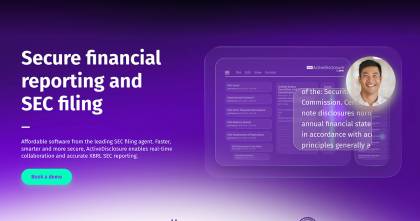From Mandatory Disclosures to Stakeholder Expectations - Navigating the New ESG Reporting Landscape
---
August 1, 2024
As a CFO, you're likely laser-focused on optimizing financial performance and driving shareholder value. However, ignoring environmental, social, and governance (ESG) factors could be leaving money on the table and exposing your company to material risks.
ESG considerations are becoming increasingly important for large corporations, both private and public. Investors, customers, regulators, and other stakeholders are closely scrutinizing a company's ESG performance and are factoring it into their decision-making.
In recent years, there has been an uptick in jurisdictions requiring mandatory reporting from non-listed companies. While many regulations in the Asia-Pacific region are targeted at public companies, Japan, Hong Kong, Indonesia, and Singapore are also encouraging non-listed companies to adopt sustainability disclosures on a voluntary basis. Singapore and New Zealand have gone a step further by establishing regulatory requirements for private companies as well.
For example, starting in 2027, Singapore will require large non-listed companies – or those with at least S$1 billion (US$0.74 billion) in annual revenues – to disclose climate-related information, while listed firms must comply from 2025. At the same time, all SGX listed companies in Singapore will be required to make climate-related disclosures starting from the financial year (FY) of 2025. The disclosures will have to be done based on local reporting standards that are aligned with the International Sustainability Standards Board (ISSB).
New Zealand, meanwhile, has already introduced mandatory climate-related disclosures for financial institutions and certain large entities in 2023, requiring these financial market participants to disclose their climate-related risks and opportunities in annual climate statements.
The landscape is rapidly evolving in Hong Kong at the same time. On January 1, 2025, new climate-related disclosure requirements for issuers under the Hong Kong Stock Exchange (HKEX) will come into effect, closely aligned with the IFRS S2 climate-related disclosures published by the International Sustainability Standards Board (ISSB). The implementation will be rolled out in phases, with all Main Board issuers initially required to provide mandatory disclosure of Scope 1 and Scope 2 greenhouse gas emissions. The remainder of the new requirements will apply to all Main Board issuers on a "comply or explain" basis, and will become mandatory for LargeCap issuers on or after January 1, 2026. HKEX issuers are now provided with clarity on the new climate-related disclosure requirements, and are now therefore able to focus efforts on practical steps needed to deal with the challenges associated with meeting the new reporting requirements.
Reference: Click here to download the HKEX Implementation Guidance for Climate Disclosures under HKEX ESG reporting framework
A recent Bain & Company report found that only 24% of companies have the technology and processes to meet future sustainability reporting requirements. This lack of preparedness could put both private and public companies at a competitive disadvantage as ESG disclosure becomes the norm.
Beyond compliance, integrating ESG into your business strategy and reporting can unlock significant value. Studies show that companies with strong ESG practices tend to outperform their peers financially. Improved ESG performance can lead to cost savings, risk mitigation, enhanced brand reputation, and better access to capital.
Today’s CFOs are uniquely positioned to drive ESG integration across the organization. By implementing a robust ESG reporting solution, you can:
- Identify material ESG risks and opportunities that could impact financial performance.
- Benchmark your ESG performance against industry peers and set targeted improvement goals.
- Enhance transparency and communication with investors, customers, and other stakeholders.
- Streamline ESG data collection and reporting to meet evolving regulatory requirements.
- Proactively addressing ESG considerations can help future-proof your business and position it for long-term success.
Take a proactive stance and begin early-stage preparations. Continue monitoring the disclosure requirements and ESG reporting activities, incorporate additional changes into your company's plans to avoid the hassle of playing catch-up later.
DFIN’s ActiveDisclosure platform and our network of ESG partners are here to support you to confidently and cost-effectively manage your ESG and financial reporting. Click here to learn how ActiveDisclosure can assist you in meeting new disclosure requirements, or schedule a meeting with our team today: https://www.dfinsolutions.com/products/activedisclosure/private-company

